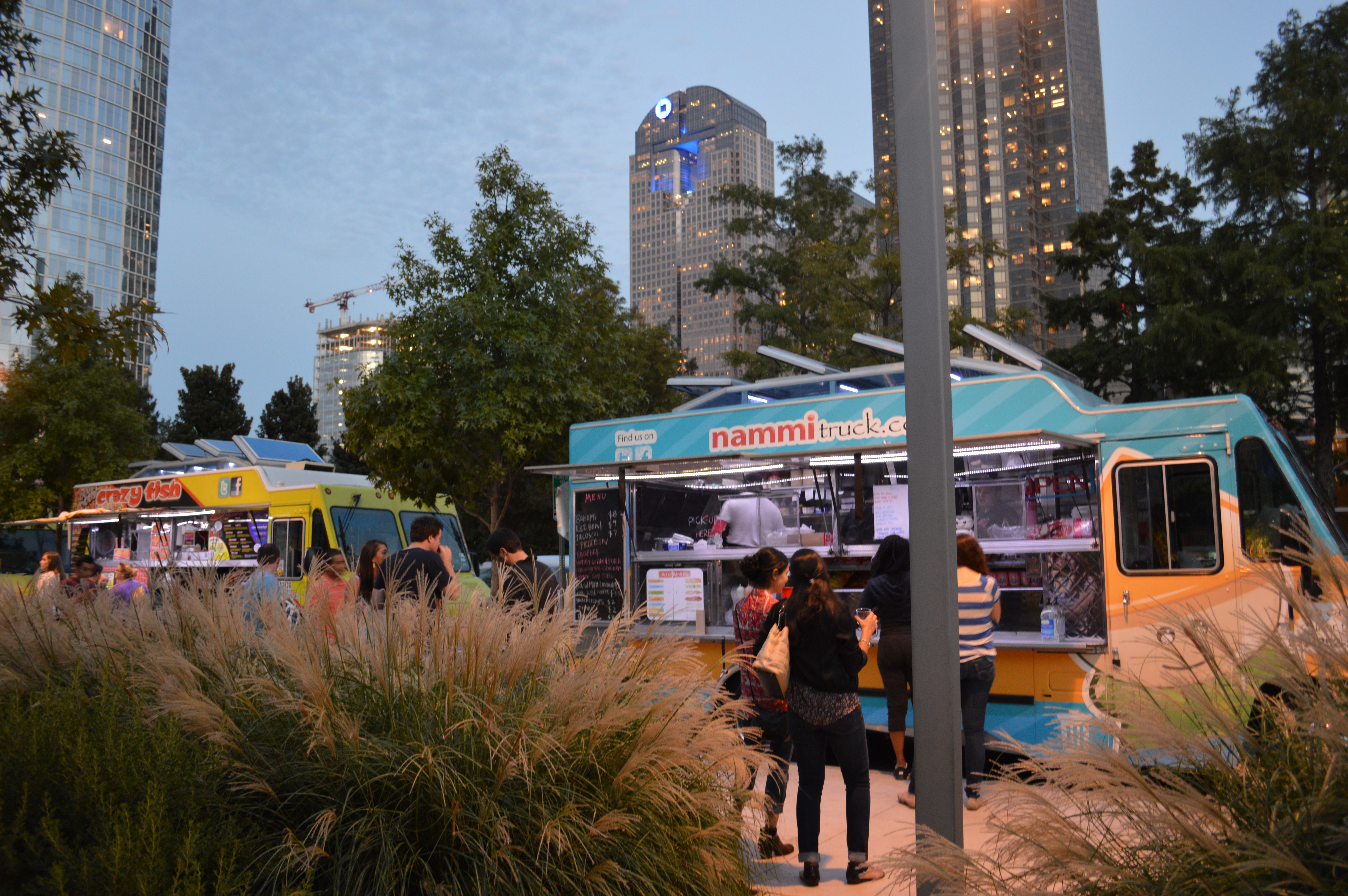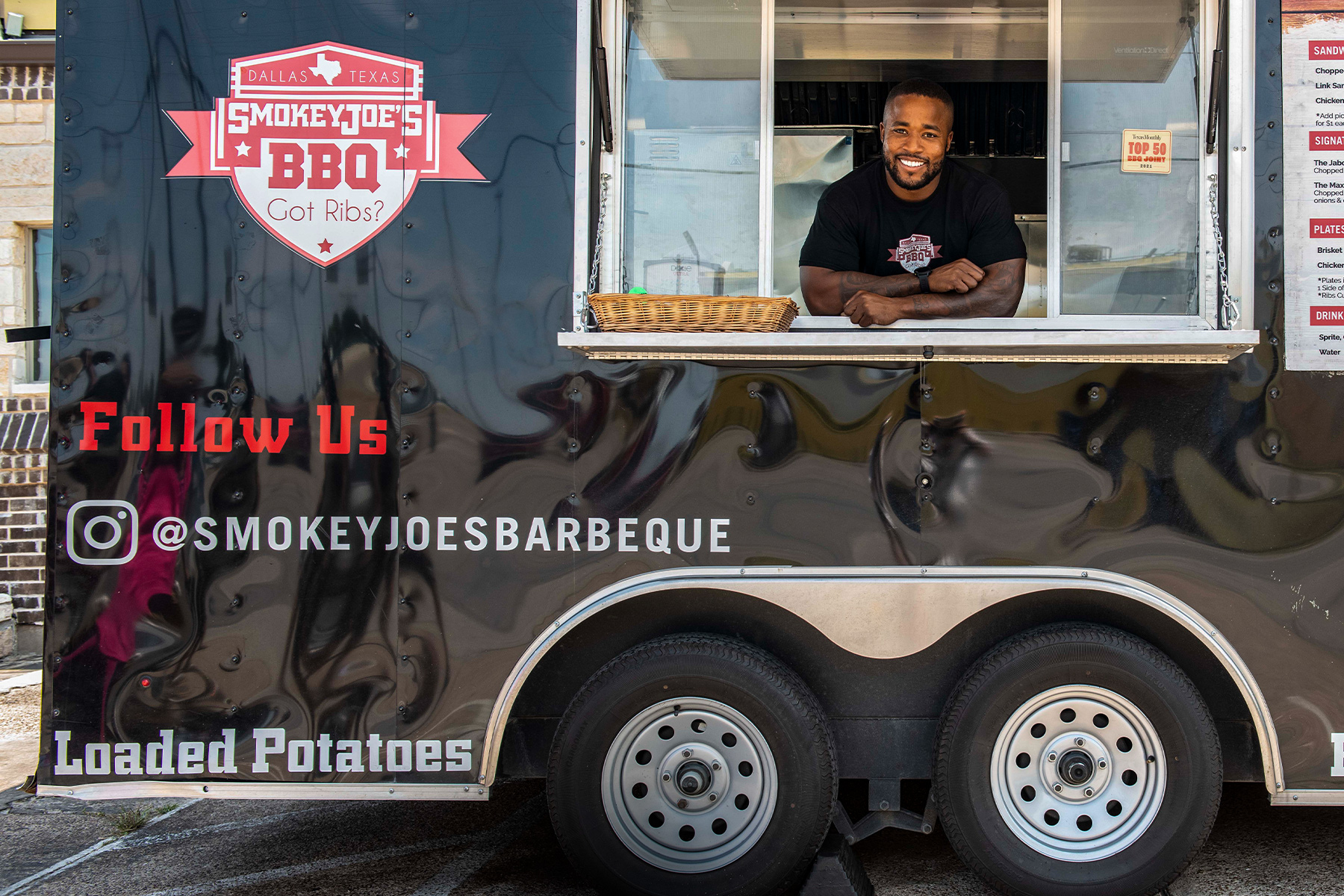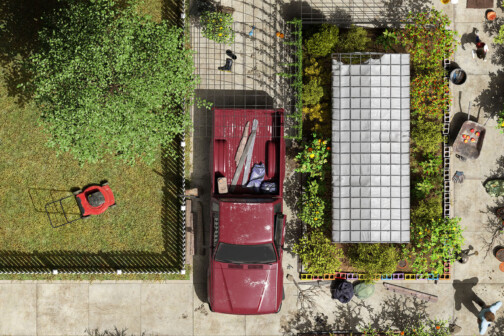There are about 774 new laws going into effect in Texas Friday, and one bill designed to make it easier for food truck operators has left employees of both Dallas County and the city of Dallas scrambling.
House Bill 2878 shifts oversight of health inspections for food trucks to counties instead of cities. The idea, one of the bill’s sponsors says, is to make it easier for food truck operators to do business, since they will only need one permit, as opposed to several for each city in which they wish to operate. But it doesn’t apply to every county in Texas. In fact, it’s narrowly tailored to Tarrant and Dallas counties. And the latter apparently had no idea until last week.
The Texas Constitution bars legislators from tailoring bills to a specific county or city. So instead—like the bill attempting to get rid of Harris County’s elections department—they turn to demographics.
And so, the language in HB 2878 says it applies to counties with a population of 2.1 million people or more. These affected local governments contain an airport that offers commercial flights and is owned by two public agencies. The parameters also require the existence of another airport with non-commercial flights that is owned by the “principal city” in the county.
According to the 2022 U.S. Census, Dallas County has 2.6 million people. Tarrant County has 2.15 million. Dallas and Fort Worth each own DFW International Airport. (Dallas owns about 62 percent.) Both own noncommercial airports: Dallas Executive Airport and Fort Worth’s Alliance Airport. San Antonio, Austin, and Houston also have commercial and non-commercial airports, but they’re solely owned by those cities. They are not subject to the new law.
It was news to City Hall and the county health department that Dallas meets that criteria.
“We actually got a lot of very positive feedback in committee hearings,” said state Rep. Giovanni Capriglione, a Tarrant County Republican. “We did have some people asking us if it could be amended to include more counties, but I decided we should just keep it the way it is for now—I don’t need to find a new enemy or potential enemy.”
He said that there was some pushback (but “not from Dallas County, for sure”) but the general reaction was that “this is good, it’s efficiency, it saves money for food truck operators.” Capriglione said that in the next regular legislative session, he anticipates that the law will be expanded to include more counties.
Dallas County and the city of Dallas both thought the bill applied solely to Tarrant. City staffers who didn’t want their names published said they began discussing the impact of the bill last week when they were alerted to the matter. The Dallas County Commissioners Court met in a special called meeting Tuesday afternoon to talk about its plan.
Dallas County Health and Human Services Chief Dr. Philip Huang said the county was also unaware. “It surprised us,” he said. “We had been informed early on that it was supposed to apply only to Tarrant County.”
But Capriglione said that the bill was filed fairly early in session, and while it had a narrow application, it never deviated from the idea that it would address the two big, neighboring counties. “I don’t want to sound defensive,” he said. “But we filed this bill a long time ago. And it was out there, and obviously, it has the term ‘food truck’ in there, and it talks about counties and about health inspections. It’s been publicly available, and it was out there for a long time, and those terms were in there.”
Capriglione said the language about the airports may have caused some confusion. The bill analysis may not have helped either. It mentions specifically the number of cities in Tarrant County that a food truck operator might need to get a license to operate as a good reason for the bill, but it names no other county.
The lawmaker also said that he didn’t necessarily want to totally blame the county and city, either. “There are a lot of bills—I’m not harping on them either,” he said. “I think we filed something like 8,000 bills and all these resolutions. It’s difficult to follow all of it. And the bill doesn’t say Dallas County, and it doesn’t say Tarrant County either, right?”
There were also a lot of beefier bills—like the so-called “Death Star” bill, which affects how cities can regulate—that commanded the lion’s share of the attention of many cities. And, for what it’s worth, even some news outlets reported that the bill applied only to Tarrant County.
But Capriglione said he always intended it to address more than one county. “I never said it was just Tarrant,” he said. “I never said that.”
Now that the city and the county are aware, things are moving quickly. Huang said a fee schedule and outline of steps for food trucks, food carts, and ice cream carts is ready to go, and a website is up that will allow food truck operators to start making appointments for their permits. A notice about the change was distributed via email Thursday afternoon. Dallas County plans to hire five inspectors and a clerk.
The permit fees and requirements appear to be similar to what food truck operators already encounter in the city of Dallas, which were simplified and lowered by the City Council just last year.
“I never said it was just Tarrant,” he said. “I never said that.”
State Rep. Giovanni Capriglione
The county will also begin crafting interlocal agreements with cities in hopes that some—like Dallas—will handle the inspections and permitting as an agent for the county, in return for a share of the revenue. Those ILAs will need to be approved by city councils. Huang said there will also be a six-month grace period to allow operators to obtain county permits and for the county to iron out agreements with cities.
Probably, anyway. Huang used the word “complicated” at least twice in 10 minutes.
For operators, the bill only moves the food safety portion of inspections to county oversight. “Some cities may have other requirements, like fire safety or zoning, and they’ll still need to meet those,” he said.
Once things get ironed out, many food truck operators may actually enjoy the ability to expand their market without the need to purchase numerous permits. Kris Manning, owner of Smokey Joe’s BBQ in Oak Cliff, has operated a food trailer since 2020. The trailer travels all over Dallas-Fort Worth, and it helped keep the restaurant afloat when there were in-person restrictions during the pandemic. Now it’s an extension of the restaurant.
Last year, Manning’s trailer was one of many that benefitted from Dallas’ major code rewrite that allowed food trailers to operate outside of special events. It gave operators permission to cook raw chicken and fish inside the trailers as opposed to an off-site commercial kitchen.
The new bill is another game-changer. Manning told D Magazine that he heard rumors about the bill earlier this year, but he wasn’t sure if they were legitimate. He initially thought it wasn’t going to happen.
“It’s really nice because oftentimes, for each city we will have to pay for a permit fee or an extension fee,” Manning said. “I think that it would be amazing to go to different cities that are within Dallas or Tarrant counties.”
Applying for one permit per county means Manning saves money and time. For events and festivals, Manning says, he tries to plan in advance for temporary permits, but sometimes appointments were booked up a week or two in advance.
Manning says Smokey Joe’s does a lot of work in Fort Worth and at Texas Motor Speedway. He’s applying for temporary permits almost weekly. Sometimes, those deadlines come quickly. Instead of applying for weekly permits in Fort Worth—and Garland, Richardson, and Dallas—Manning said he’s excited for the process to dwindle down to two.
He’s hoping the bill will someday expand to other major Texas cities such as Houston and Austin. The opportunity to bring Smokey Joe’s to major national and international events like South by Southwest, Austin City Limits music festival, and Formula One races could change his business.
“Whoever thought about this is really in our corner when it comes to mobile food permits,” he said. “I think it’s great for the city as well because, a lot of small businesses, that’s where we start is in a food trailer, and that’s what helps a small business grow.”
Authors

Bethany Erickson
View Profile







